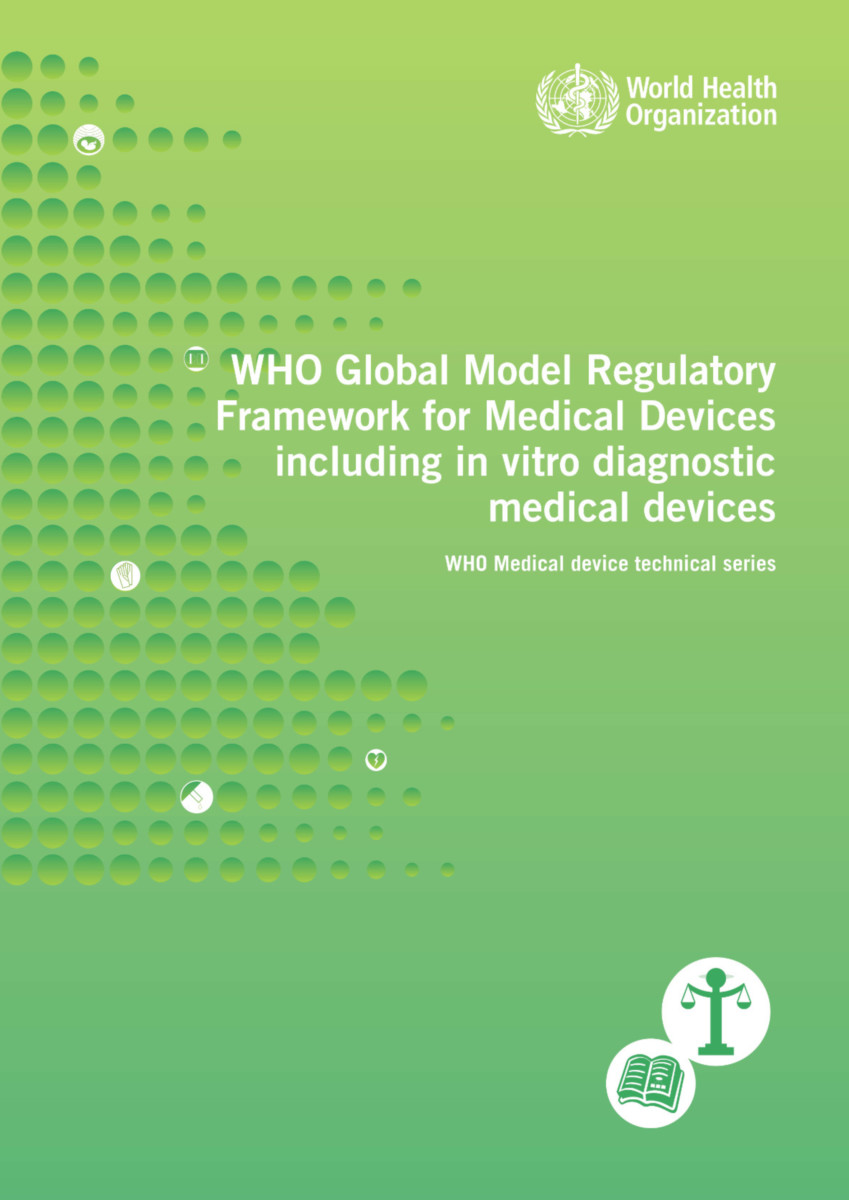WHO Global Model Regulatory Framework for Medical Devices including In Vitro Diagnostic Medical Devices
- Publisher
World Health Organization - Published
9th May 2017 - ISBN 9789241512350
- Language English
- Pages 72 pp.
- Size 8.25" x 11.75"
The Model recommends guiding principles and harmonized definitions and specifies the attributes of effective and efficient regulation to be embodied within binding and enforceable law. Its main elements refer to international harmonization guidance documents developed by the Global Harmonization Task Force (GHTF) and its successor, the International Medical Device Regulators Forum (IMDRF).
The Model is particularly relevant for WHO Member States with little or no regulation for medical devices currently in place but with the ambition to improve this situation. It foresees that such countries will progress from basic regulatory controls towards an expanded level to the extent that their resources allow. The Model is written for the legislative, executive, and regulatory branches of government as they develop and establish a system of medical devices regulation. It describes the role and responsibilities of a country's regulatory authority for implementing and enforcing the regulations. Also, it describes circumstances in which a regulatory authority may either "rely on" or "recognize" the work products from trusted regulatory sources (such as scientific assessments, audit, and inspection reports) or from the WHO Prequalification Team.
Section 2 of this document recommends definitions of the terms "medical devices" and IVDs. It describes how they may be grouped according to their potential for harm to the patient or user and specifies principles of safety and performance that the device manufacturer must adhere to. It explains how the manufacturer must demonstrate to a regulatory authority that its medical device has been designed and manufactured to be safe and to perform as intended during its lifetime. Section 3 presents the principles of good regulatory practice and enabling conditions for effectively regulating medical devices. It then introduces essential tools for regulation, explaining the function of the regulatory entity and the resources required.
Section 4 presents a stepwise approach to implementing and enforcing regulatory controls for medical devices as the regulation progresses from a basic to an expanded level. It describes elements from which a country may choose according to national priorities and challenges. Also, it provides information on when the techniques of reliance and recognition may be considered and on the importance of international convergence of regulatory practice.Section 5 provides a list of additional topics to be considered when developing and implementing regulations for medical devices. It explains the relevance of these topics and provides guidance for regulatory authorities to ensure that they are addressed appropriately.
The Model outlines a general approach but cannot provide country-specific guidance on implementation. While it does not offer detailed guidance on regulatory topics, it contains references to relevant documents where further information may be found. It does not detail the responsibilities of other stakeholders such as manufacturers, distributors, procurement agencies, and health-care professionals, all of whom have roles in assuring the quality, safety, and performance of medical devices.
World Health Organization
World Health Organization is a Specialized Agency of the United Nations, charged to act as the world's directing and coordinating authority on questions of human health. It is responsible for providing leadership on global health matters, shaping the health research agenda, setting norms and standards, articulating evidence-based policy options, providing technical support to countries, and monitoring and assessing health trends.


